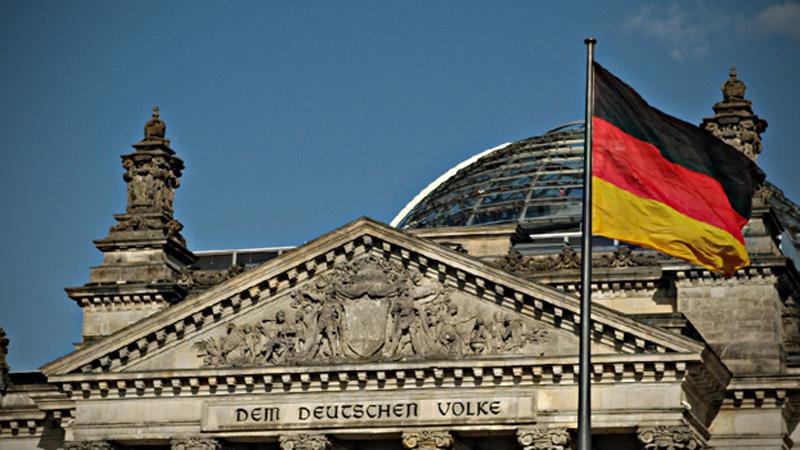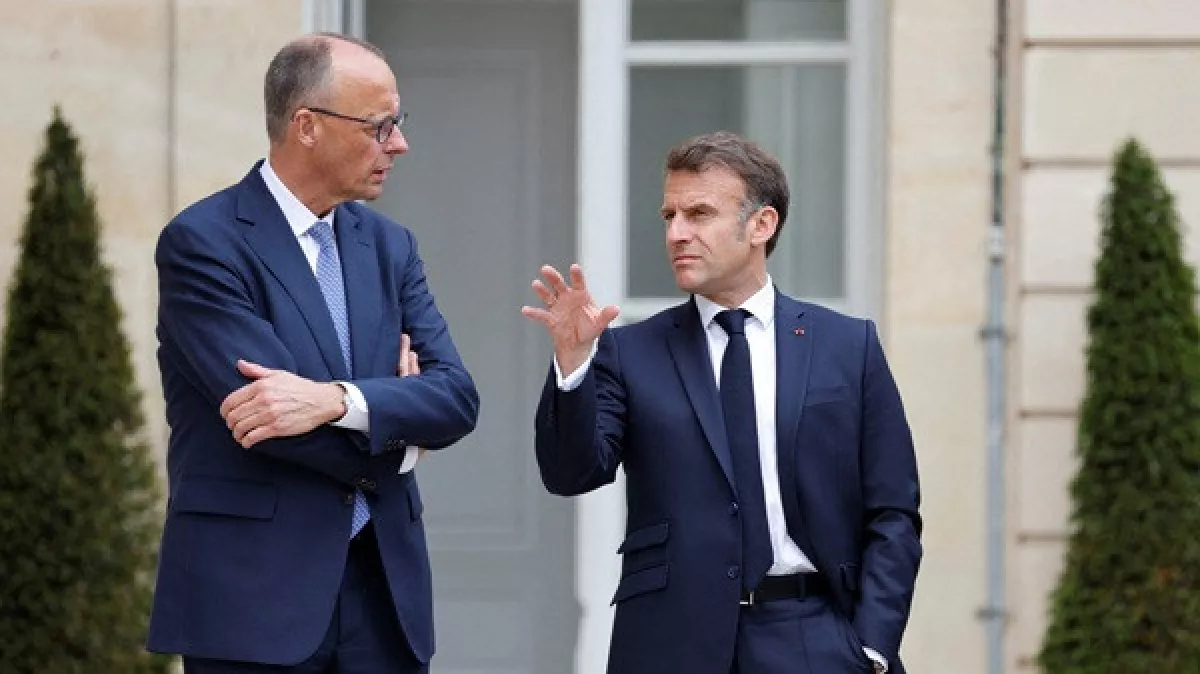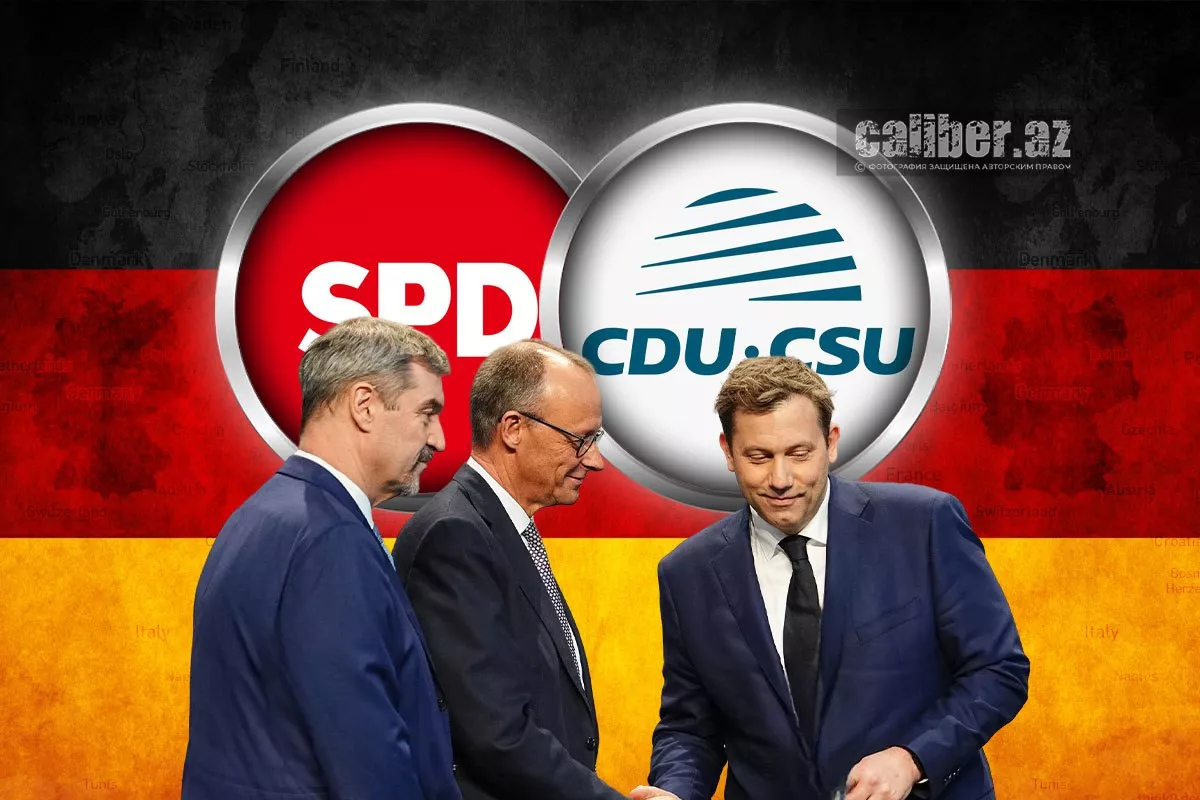Germany between ambition and reality Merz’s struggle to lead Europe
German Chancellor Friedrich Merz has regretfully acknowledged that, at the current historical stage, Europe does not play the proper role in the world that could contribute to continental security. At the same time, he once again highlighted Europeans’ dependence on the American umbrella. Following this, by pointing out the interaction between China, Brazil, and several other countries with Russia, as well as the existence of a “new partnership” within the framework of the SCO (“revisionist alliances are being formed”), Merz emphasised the need for European unity, stressing how much the implementation of this policy depends on Berlin. According to the German chancellor, he is attempting to take steps to demonstrate their alignment with the expectations placed on Germany.
In this context, it is hard not to agree that, since taking office, Merz has indeed tried to restore Germany’s former role as a leader in Europe. The question, however, is that the global situation itself—including the deep rift within the transatlantic community—does not allow him to take any real actions in this direction. More precisely, he is taking certain steps, but it is difficult to speak of their effectiveness, especially against the backdrop of a severe financial and economic setback in the country.

On the other hand, Merz is fully aware that neither the United Kingdom, nor France, nor Italy will agree to take a secondary role in Europe. It was precisely for this reason that, following Franco-German talks in May, the two sides announced the creation of a joint Defence and Security Council. In July, Berlin signed a security treaty with London, which also covered defence issues.
The nuance, however, is that while Germany is grappling with severe economic problems, France is perpetually caught in governmental crises, including the current period (on 8 September, the National Assembly expressed no confidence in the prime minister, who had been in office for just nine months). Against this backdrop, many experts ask: if Emmanuel Macron and Friedrich Merz cannot address domestic shortcomings, how—and with what means—do they hope to “shake up” old Europe? All the more so since Merz found the courage to candidly admit that even the rudiments of unity are missing among Europeans, as direct pressure is being exerted from “within the political West” on “our liberal world order.”

Against this backdrop, Merz noted that a “new conflict between systems has broken out between liberal democracies and an axis of autocracies” has begun to emerge openly, to the detriment of “Western democracy.”
In other words, Merz continues his effort to demonstrate to the world—though likely with a focus on Europe—Berlin’s geopolitical stature as a country ready to lead the European community. This includes subtly promoting the idea that Germany could, in principle, appear as the leader of the entire Western world, indirectly planting the notion in the international arena of a rapprochement between Washington and Moscow, and to some extent, with Beijing.
Interestingly, Merz often seeks to assert Germany’s leadership on certain geopolitical issues through the China agenda, which is reflected in his earlier remarks about the SCO—given that Beijing effectively holds a leading position in the organisation. Just recently, Merz outlined Berlin’s priority of reducing dependence on China for raw materials, noting that Beijing seeks to exploit “vulnerabilities in trade,” which effectively amounts to “blackmail.” In his assessment, systemic competition is intensifying globally, and both Berlin and Europe as a whole must be interested in diversifying “our supply and trade chains in the interest of strategic sovereignty.”
In light of these statements, some analysts have wryly pointed out that, although the main blows to the EU’s image and trade interests have been openly dealt by the Washington administration, Merz does not blame the US, but China, advocating instead for building new relationships with India, Brazil, and other countries. At the same time, several observers, convinced that Merz’s anti-China stance is largely aimed at Russia, are puzzled by his interest in New Delhi, which maintains an openly strong “oil-based” partnership with Moscow.

At the same time, Merz seems fully aware that, in order to assert leadership on the international stage, he must first stabilise the domestic situation. Just a few days ago, he highlighted the urgent need to address Germany’s internal problems, promoting the ideology of an “autumn of reforms.” At the core of this call is a gap in the federal budget for 2027–2029 of over €170 billion, as outlined by the chancellor, as well as the existence of three million unemployed in the country. However, Merz’s coalition partners, represented by the Social Democratic Party, not only fail to support his proposed economic measures but could very well block any of his initiatives.
In light of this, another question arises: how does Merz intend to ceremoniously lead all the major European capitals when he cannot even implement the necessary measures at home? And to what extent does the German population—or Europe as a whole—see Merz (or Macron) as a genuine political force capable of driving Europe toward progress and development?








